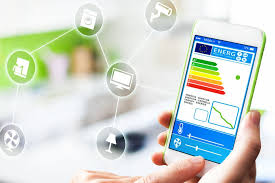In the face of rising energy costs and the increasing urgency to mitigate climate change, understanding and controlling our energy consumption is no longer a luxury but a necessity. Energy metering, a technology once confined to billing, has evolved into a powerful tool that authorises individuals and businesses to optimise energy use, cut costs, and make significant strides toward sustainability.
This energy metering data allows us to understand our energy habits, identify inefficiencies, and make informed decisions that direct to substantial savings and a reduced environmental footprint.
A Deeper Look at Energy Metering Data
At its most basic level, energy metering measures the amount of energy consumed. However, it’s the granular data produced by these meters that truly empowers consumers and businesses alike. Modern energy meters, particularly smart meters, provide a detailed breakdown of energy usage patterns:
- Granular Usage: This reveals exactly how much energy is being consumed at specific times throughout the day, week, and even year.
- Real-Time Monitoring: By observing energy usage as it occurs, individuals and organisations gain valuable awareness that can inspire behavioural shifts.
- Load Identification: Uncover the energy “offenders” in your home or business, identifying appliances or systems consuming the most energy.
- Anomaly Detection: Unusual spikes or dips in energy consumption can be promptly flagged, signalling potential malfunctions or inefficiencies.
Beyond Individual Users
The benefits of energy metering data extend far beyond individual homes and businesses. Utility companies can leverage this data to:
- Improve Grid Management: By understanding real-time energy usage patterns, utilities can anticipate peak demand periods and take proactive steps to balance supply and demand. This can involve optimising generation schedules, integrating renewable energy sources, or implementing targeted demand-response programs.
- Reduce Infrastructure Costs: With better insights into energy usage patterns, utilities can strategically invest in infrastructure upgrades. This can involve targeted reinforcement in areas with historically high demand or the implementation of smart grid technologies for improved efficiency.
- Develop Targeted Customer Programs: Energy metering data allows utilities to offer customers personalised energy-saving solutions. This may include tailored rebates for energy-efficient appliances, time-of-use pricing plans that incentivise off-peak usage, or educational programs to promote energy-conscious behaviour.
Empowering Informed Decision-Making
The insights taken from smart meter data empower users to make informed actions about their energy consumption. Here are some concrete examples:
- Optimising HVAC systems: Smart meter data can reveal inefficiencies in heating and cooling systems. By analysing usage patterns, users can identify opportunities to adjust thermostats, schedule operations during off-peak hours, or invest in energy-efficient upgrades.
- Investing in Energy-efficient Appliances: When smart meter data highlights a particularly energy-taking appliance, it strengthens the case for replacing it with a more efficient model. The long-term cost savings can enormously outweigh the upfront investment.
- Participating in Demand-response Programs: Many utility companies offer programs that incentivise customers to reduce their energy consumption during peak hours. Smart meter data allows users to track their usage and participate strategically in these programs to receive financial rewards.
Tools and Technologies for Data Analysis
The ability to leverage smart meter data effectively hinges on utilising user-friendly tools and technologies. Many utility companies offer online portals where customers can access their meter data, view historical trends, and receive personalised energy-saving recommendations. Additionally, there are third-party applications and platforms designed specifically for analysing and interpreting smart meter data. These tools can provide more sophisticated visualisations, custom reports, and integration with smart home devices for automated energy management.
A Brighter, More Efficient Future
In a world grappling with the urgent need to address climate change and increasing energy costs, energy metering data emerges as a beacon of hope. By gaining a deep understanding of our energy consumption patterns, we can make informed decisions, save money, and actively participate in building a more sustainable future. Partnering with reputable energy brands equips you with the knowledge, tools, and support necessary to maximise the value of your energy data, paving the way for a brighter, more efficient tomorrow.



 Bitcoin
Bitcoin  Ethereum
Ethereum  Tether
Tether  XRP
XRP  Solana
Solana  USDC
USDC  Cardano
Cardano  TRON
TRON  Lido Staked Ether
Lido Staked Ether  Avalanche
Avalanche  Toncoin
Toncoin